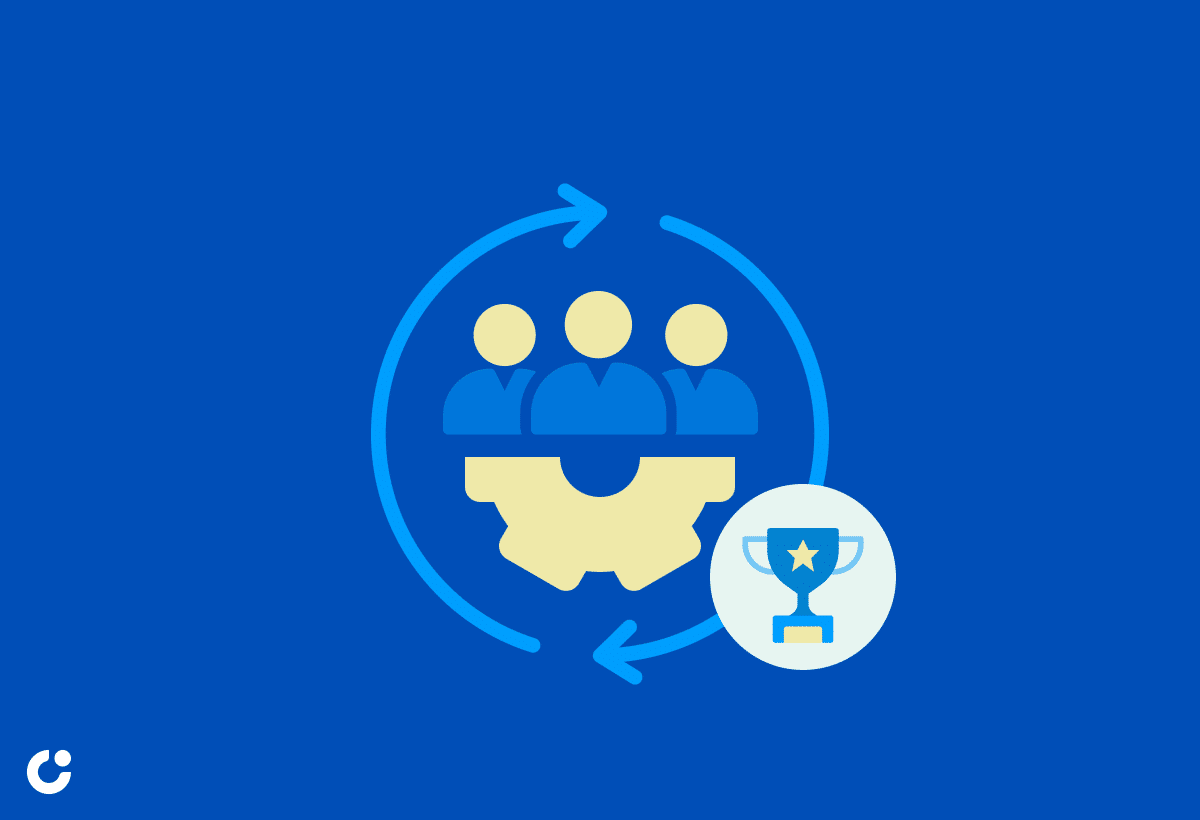Building strong customer rapport is essential for successful interactions in any business setting. But how do you establish that connection with your customers? Understanding the art of rapport-building questions is key.
In this article, we will explore the importance of customer rapport, the elements of effective questions, and examples to help you build meaningful connections with your customers. Learn how to personalize your customer service, align with customer goals, and utilize feedback to create a successful customer experience.
Discover tips for asking engaging rapport-building email questions and enhance your customer relationships today.
Key Takeaways:
Building rapport with customers is crucial for success in any situation.
Effective rapport-building questions should be personalized, aligned with customer goals and needs, and incorporate customer feedback.
Active listening and using a comfortable and engaging tone are key elements for successful rapport-building questions.
Understanding Rapport-Building Questions

Understanding Rapport-Building Questions is crucial for businesses to establish strong relationships with customers through effective communication and interactions.
When businesses engage in customer service, the use of rapport-building questions becomes a fundamental tool in creating a personalized experience for prospects. By asking thoughtful and insightful questions, businesses can show genuine interest in understanding the customer's needs and preferences, leading to a more tailored approach in addressing their concerns. Effective communication plays a pivotal role in conveying empathy and establishing a sense of trust between the business and the customer. Through meaningful interactions, businesses can connect on a deeper level and build long-lasting relationships that are essential for driving sales and fostering customer loyalty.
What is customer rapport?

Customer rapport refers to the positive relationship and connection established through customer interactions, reflecting trust, understanding, and satisfaction.
Building and nurturing customer rapport is essential for any business, as it forms the foundation of customer satisfaction, loyalty, and long-term success. Several key elements contribute to the development of strong customer relationships.
Trust is paramount, as customers need to feel confident in the company's products or services and trust its integrity. Effective communication, responsiveness to feedback, personalized service, and consistent delivery of promises also play crucial roles in rapport-building. Asking rapport-building questions to understand customer needs and preferences can help tailor solutions and enhance the overall customer experience.
What are effective rapport-building questions?

Effective rapport-building questions are thoughtful inquiries that help businesses engage prospects, enhance sales conversations, and deepen customer relationships.
These questions serve as a bridge to connect on a more personal level, allowing the customer or prospect to feel valued and understood. By showing genuine interest and active listening during interactions, sales representatives can uncover valuable insights about the individual's needs and preferences. This tailored approach not only leads to a more tailored product/service offering but also fosters trust and loyalty. Such questions also create a comfortable atmosphere fostering open communication, paving the way for more productive exchanges and long-term partnerships.
Benefits of Building Customer Rapport

Building customer rapport yields numerous benefits, including valuable customer feedback, enhanced proactive customer service, and strengthened customer loyalty.
Establishing a positive relationship with customers can lead to increased customer success as it fosters trust and loyalty. When customers feel valued and understood, they are more likely to provide insightful feedback, which can be incredibly beneficial for a company's growth and improvement. Through effective rapport-building efforts, organizations can anticipate customer needs and proactively address issues, resulting in a smoother and more efficient customer service experience. This not only enhances customer satisfaction but also contributes to a more positive workplace environment where employees feel give the power toed to deliver top-notch service."
Elements of Effective Rapport-Building Questions

The Elements of Effective Rapport-Building Questions encompass the structure, tone, and content that contribute to successful rapport-building interactions.
In terms of establishing a strong connection with customers, asking questions with a genuine interest in their needs is crucial. Active listening plays a significant role in this process, ensuring that the customer feels heard and understood. The tone of the questions should be warm and inviting, creating a comfortable atmosphere for open communication. The structure of the questions should be clear and concise, avoiding ambiguity and confusion. By crafting questions that seek to uncover solutions rather than push products, businesses can demonstrate their commitment to customer satisfaction and build lasting relationships.
Anatomy of a Memorable Rapport-Building Question

The Anatomy of a Memorable Rapport-Building Question involves crafting engaging, relevant inquiries that resonate with customers and lead to fruitful interactions.
Effective rapport-building questions are those that dive deeper into the customer's situation and needs, showing genuine interest in their concerns. By asking open-ended questions that encourage customers to share their experiences and preferences, you can gather valuable insights to tailor your interactions. These questions should not only spark engaging conversations but also demonstrate empathy and understanding. For example, asking 'What challenges are you currently facing in your business?' or 'How can we best support you?' shows a commitment to addressing the customer's specific needs. Crafting questions that align with customer needs not only strengthens the relationship but also sets the foundation for long-term loyalty and trust.
Key Elements for Successful Questions

Key Elements for Successful Questions include personalization, relevance to prospects, and the ability to elicit meaningful responses that foster rapport and trust.
Personalization in questioning is crucial as it shows genuine interest in the prospect and their specific needs or goals. By tailoring questions to individual clients, it can create a more engaging conversation and demonstrate that their thoughts and preferences are valued. This approach not only helps in obtaining valuable feedback but also lays the foundation for building a strong customer relationship based on trust.
Active listening plays a significant role in this process - understanding the responses, maintaining a positive tone, and being receptive to the nuances in communication are key factors that contribute to successful questioning strategies.
Examples of Rapport-Building Questions

Examples of Rapport-Building Questions demonstrate how tailored inquiries can engage prospects effectively, cover a wide range of topics, and facilitate meaningful conversations.
In terms of career questions, asking about a person's professional journey, goals, or challenges can show genuine interest in their aspirations and achievements. Such inquiries not only help you understand their career path but also establish a deeper connection based on shared ambitions.
Inquiring about school experiences, such as favorite subjects, extracurricular activities, or memorable moments, can evoke nostalgic feelings and create a common ground for bonding. By exchanging stories about school days, you can uncover similarities, build trust, and foster a sense of camaraderie.
Company-related questions, like inquiring about a customer's experience with products/services, feedback on specific features, or suggestions for improvement, demonstrate your commitment to providing valuable content and enhancing customer satisfaction. By seeking their input, you not only gather valuable insights but also show that their opinion matters.
Various Categories of Questions

Various Categories of Questions encompass a spectrum of inquiry types, including those related to attitudes, podcasts, and other engaging topics that foster rapport and communication.
In terms of connecting with customers on a deeper level, the *attitude* segment of questions can help businesses gauge customer sentiment and satisfaction levels. Delving into topics like podcasts not only offers a chance to explore shared interests but also showcases the company's commitment to staying current with trends in the industry.
Incorporating questions that tap into customers' preferences and hobbies can create a personalized touch, making interactions more memorable. By tailoring questions to match the diverse range of customer interests, salespeople can transform routine interactions into engaging conversations that resonate on a deeper level.
Building Rapport with Customers

Building Rapport with Customers involves personalizing customer service, establishing trust, and creating positive interactions that enhance the overall customer experience.
One effective strategy for building rapport with customers is to actively listen to their needs and concerns, demonstrating empathy and understanding. By engaging in meaningful conversations and showing genuine interest in their experiences, customers are more likely to feel valued and appreciated. Personalizing service interactions through customized solutions and tailored recommendations based on customer feedback fosters a sense of connection and loyalty.
Proactive customer service initiatives can also play a crucial role in building rapport, such as anticipating customer needs and addressing potential issues before they arise. By being attentive and responsive to customer inquiries and concerns, businesses can demonstrate a commitment to customer satisfaction.
Creating a customer-centric approach involves aligning all aspects of the workplace, from frontline staff to management, with a focus on delivering exceptional service and building lasting relationships. By prioritizing transparency, open communication, and responsiveness, businesses can cultivate trust-based relationships with customers that lead to long-term loyalty and advocacy.
Personalize customer service

Personalizing customer service involves tailoring interactions based on individual preferences and feedback, creating a more engaging and personalized experience for customers.
By understanding their unique needs and desires, companies can build stronger relationships with customers and foster loyalty. For instance, when a company takes the time to address a customer by their preferred name or remembers their past interactions, it conveys a sense of care and attention to detail.
Feedback plays a crucial role in this process, as it provides valuable insights into what customers appreciate and what areas need improvement. Companies can use this feedback to continuously refine their service offerings and adapt to changing customer preferences.
Align with customer goals and needs

Aligning with customer goals and needs involves understanding their preferences, offering relevant solutions, and fostering trust through tailored interactions.
One crucial aspect of aligning with customer goals is the ability to identify their unique needs and preferences. By asking effective questions, businesses can gain valuable insights into what truly matters to their customers, allowing them to tailor their products and services to meet these specific requirements. Creating a personal connection with customers not only enhances their overall experience but also builds a strong foundation of trust. In the workplace, this customer-centric approach can lead to increased satisfaction, loyalty, and long-term relationships.
Obtain and utilize customer feedback

Obtaining and utilizing customer feedback is essential for proactive customer service initiatives, building trust with prospects, and enhancing overall business performance.
By actively seeking feedback, companies demonstrate their commitment to customer success and show that the customer's opinion matters in driving positive change. Analyzing feedback allows businesses to identify areas for improvement within the workplace and sales processes, leading to increased efficiency and revenue generation.
Incorporating customer feedback into strategic decision-making not only helps in addressing current challenges but also in anticipating future needs, thereby staying ahead of the competition in the dynamic market landscape.
Provide proactive service

Providing proactive service involves anticipating customer needs, establishing a dedicated customer success department, and fostering a responsive and customer-centric workplace culture.
By actively identifying potential issues before they arise, companies can deliver exceptional service that exceeds customer expectations. This not only helps in building positive rapport with clients but also fosters loyalty and boosts satisfaction levels. A dedicated customer success department plays a crucial role in ensuring that customer requirements are met promptly and effectively. Through effective communication and regular interaction, this department can resolve issues proactively, leaving customers feeling valued and heard.
Establish a customer success department

Establishing a customer success department is instrumental in enhancing customer satisfaction, providing tailored solutions, and aligning business processes with customer needs.
Customer success departments play a crucial role in ensuring that customers derive maximum value from a product or service. They are actively involved in the onboarding process, guiding customers through the initial stages of their interaction with the company.
By offering personalized solutions and dedicated support, these departments build trust with customers, leading to long-term relationships and loyalty. This personalized approach ensures that customers feel valued and understood, resulting in higher satisfaction levels.
Businesses that align their strategies with a customer-centric approach, championed by customer success departments, are better positioned to adapt to changing customer needs and preferences.
Develop an effective onboarding process

Developing an effective onboarding process is critical for establishing trust, integrating new employees into the workplace culture, and ensuring a smooth transition for both customers and staff.
When new hires feel welcomed and supported from day one, it sets a positive tone for their entire employee journey. A well-thought-out onboarding program not only showcases the company's values and mission but also provides a clear roadmap for success. By creating a comprehensive onboarding experience that fosters positive rapport and encourages open communication, organizations can boost employee engagement and retention rates.
Tips for Asking Effective Rapport-Building Questions

Tips for Asking Effective Rapport-Building Questions include practicing active listening, showing genuine interest, and using an engaging tone to foster meaningful interactions with customers.
Active listening is a core skill that involves not just hearing but understanding the nuances of what the customer is expressing. By listening attentively, you can pick up on subtle cues, emotions, and preferences, enabling you to tailor your questions for a more personalized interaction. It's important to exhibit genuine curiosity about the customer's needs and experiences. This authenticity builds trust and rapport, making the conversation more engaging and fruitful for both parties.
To maintain a conversational tone, try to avoid coming off as scripted or robotic. Be yourself, inject some personality, and adapt your language to suit the customer's style. Remember, the goal is to create a comfortable environment where the customer feels valued and heard. When framing your questions, provide relevant examples or scenarios to make them relatable and easy to answer, facilitating a smoother flow of conversation. Top rapport-building questions often involve open-ended queries that encourage customers to share their thoughts and feelings, fostering deeper connections and establishing a solid foundation for future interactions.
Active listening and genuine interest

Active listening and genuine interest are key components of effective communication, enabling businesses to understand customer needs, preferences, and concerns more deeply.
By actively listening to customers, companies can uncover valuable insights that allow for tailored solutions and personalized experiences, fostering long-lasting relationships. Demonstrating genuine interest in a client's story or concerns can make them feel valued and appreciated, creating a strong emotional connection that goes beyond transactional interactions. When businesses ask effective questions and show authentic curiosity, it signals to customers that their opinions and experiences matter, leading to increased trust and loyalty.
Using a comfortable and engaging tone

Using a comfortable and engaging tone in interactions fosters a positive atmosphere, encourages openness from customers, and enhances the overall quality of communication experiences.
In customer interactions, the tone you employ significantly impacts how your message is received. By adopting a warm and inviting approach, you create an environment where individuals feel valued and respected. This, in turn, cultivates trust and loyalty among your customers. Strategies such as active listening, empathy, and personalization can help you create a welcoming and inclusive communication environment.
For instance, in a podcast or newsletter aimed at prospects, using a friendly and accessible tone can make the content more relatable and engaging. This, in turn, can boost customer engagement and strengthen your relationship with your audience.

